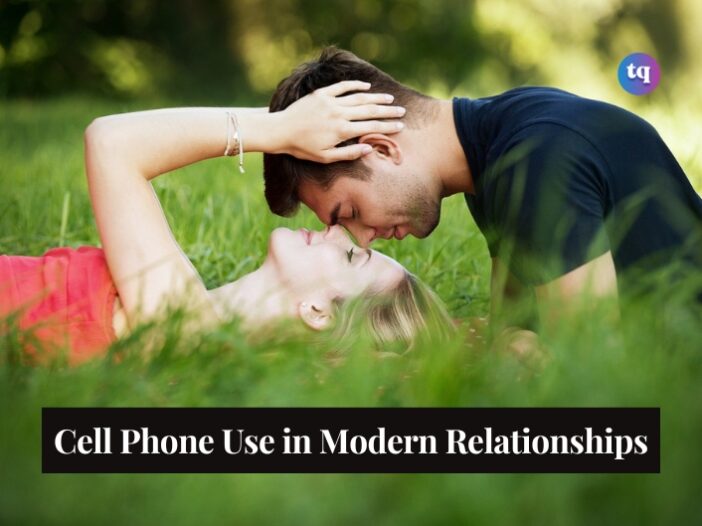
As personal relationships continue to change and evolve, the influence of technology, specifically cell phones, is increasingly prominent. One of the significant areas of focus in this regard is cell phone privacy in a relationship. This article will explore the delicate equilibrium between trust and privacy that partners need to maintain in the context of cellphone use.
Table of Contents
The Contemporary Reality
Cell phones serve as an integral part of our lives, becoming a repository of personal data, conversations, and memories. This makes them a fascinating, yet potentially invasive, window into our private lives. How this window is managed within relationships often determines the level of trust and respect among partners.
Trust Versus Privacy
While trust is a crucial component of any relationship, the need for privacy is an equally important right. These two aspects are interrelated yet distinct. It is crucial to respect a partner’s privacy, even when trust is implicit in the relationship.
Boundaries in Cell Phone Use
Establishing boundaries regarding cellphone use is essential to balance trust and privacy. Partners need to have explicit discussions about what constitutes acceptable behavior. Should reading text messages or emails be permissible? Is it acceptable to answer a partner’s phone in their absence? These are a few examples of questions that need answers.
The Role of Consent
Consent plays a critical role in defining the boundaries of cellphone use within relationships. This could mean asking for permission before accessing a partner’s phone or setting guidelines about using phones during shared quality time. Consent fosters mutual respect and encourages personal space and privacy.
Communicating Expectations
Clear communication can be the key to striking the perfect balance between trust and privacy. If partners express their comfort levels about phone use, it can prevent misunderstandings. Regular conversations about this can ensure both parties feel comfortable and valued.
Impact on Relationships
Unwarranted interference with a partner’s cellphone usage can create tension and disagreement within a relationship. Conversely, respecting privacy can enhance mutual trust and understanding. This underlines the importance of finding a balance between trust and privacy regarding cellphone use.
Respect for Individuality
A relationship doesn’t negate the individuality of the partners involved. Just as every individual needs a private space in their physical environment, they also require a private digital space. This space must be recognized and honored to maintain a healthy relationship.
Potential Dangers
The unchecked invasion of cell phone privacy can lead to a toxic relationship. It may foster suspicion and breed insecurity. This is a detrimental consequence that can be prevented by balancing trust and privacy.
Navigating Digital Distrust
An excessive focus on a partner’s cellphone use can give rise to digital distrust. This can be as simple as feeling neglected when a partner is more engaged with their phone than with you, or more complex scenarios like suspecting infidelity based on texting habits or secretive behavior regarding the phone.
Digital distrust can cause significant emotional distress and can escalate conflicts in a relationship. To navigate this, it’s essential to focus on the root causes of such distrust. Is it due to past experiences, or is it stemming from the overall dynamics of the relationship? Once identified, these underlying issues can be addressed through open and honest communication, seeking professional help if necessary.
Privacy as a Marker of Trust
While the need for trust in a relationship is universally acknowledged, privacy tends to be a grey area, often misinterpreted as secrecy or a lack of transparency. However, respecting privacy is an essential element of trust. By allowing a partner their personal space, both in physical and digital terms, we signal trust in their judgment and integrity.
This could translate to not checking their phone in their absence or not insisting on having all their passwords. Such actions communicate respect for their autonomy and personal space, which, in turn, strengthens trust. Recognizing privacy as a marker of trust, rather than a hindrance to it, can go a long way in enhancing the quality of a relationship.
Conclusion
Balancing trust and privacy regarding cell phone use in a relationship is a nuanced process. It involves clear communication, mutual respect, understanding, and consent. Establishing boundaries, respecting individuality, and avoiding potential dangers are also integral to this equation.
In essence, it is about finding a middle ground that acknowledges the importance of trust in a relationship without sacrificing the right to privacy. This balance helps to build stronger, healthier, and more respectful relationships. In the end, it is not about having the liberty to invade privacy but about having the trust that makes it unnecessary. Approaching relationships with this perspective can help foster satisfying and balanced partnerships.